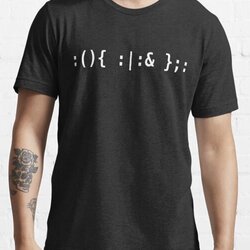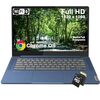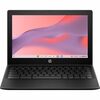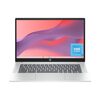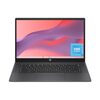Bits of Linux: 2015 #4
In this edition: A special section on supporting free software, CrunchBang dead and reborn, new Chromebook specs including Acer's 15.6-inch model, which is now available for pre-order in Germany and more.
Supporting Free Software
I kick off this edition with a special section on supporting free software projects. Usually, they start on a small scale, you heard about that free operating system that won't become big like GNU, don't you? When projects grow big though, they will reach a point where community support becomes vital.
There are many ways you can support free software and without doubt financial help is a big one. In the past 2 weeks we saw examples on how to reach out for help, but also on how to alienate part of your user base while doing so.
ProPublica published an article about Werner Koch, developer of the email encryption software GNU Privacy Guard, who was on the verge of going broke. The good news is that the article helped raise awareness of Koch's situation. The future of GnuPG looks a lot brighter now, thanks to donations from people like you and projects like the Linux Foundation's Core Infrastructure Initiative.
Also the Inkscape project sought help on their blog, specifically to fund the travel and accommodation of international volunteer developers to take part in a 3-day sprint in April and work on improving this awesome tool for creators. You can donate and find more information here. It's good to let people know how their donations will be used and I hope they'll get some people to Toronto.
Another project that needs funding is elementary OS, but their way of reaching out alienated many people in the Linux community. Specifically, statements like people who download software without paying for it are cheating the system (now redacted in the blog post) were not received well.
Personally, I think the people behind elementary are cheating themselves if they offer something for free, that they don't want to give away for free. Many other people were upset too, see for example this Reddit discussion or this video response by Lou Rizzo.
Not only the blog post but also how the elementary guys handled things afterwards feels more than unfortunate, Redditor lxskllr puts it pretty well in his comment:
I wonder why no one can simply say "We screwed up", and get on with life, instead of disappearing text, and hoping people forget. Sometimes you get a cranial/rectal inversion, and don't think things through. I can respect people that own up to it, and I don't think I'm alone.
I guess this chapter is not closed yet and I hope for the elementary project, that they'll get this sorted out.
📰 Articles / Videos
2014 LinuxQuestions.org Members Choice
Once a year the LinuxQuestions.org community is asked to choose their favorite software projects, here you can see the results from the 2014 awards.
Interesting to see Slackware being one of the favorite distros for both servers and desktops and KDE being the most popular desktop environment. I'd rather not see Skype winning the VoIP application of the year, but it'll be hard to replace with such a large user base.
Sadly, the pie charts are hard to "read", beware of switching to the 3D version, so be sure to check out the original question threads for the actual numbers.
Power saving tips for Chromebooks
Jack Wallen wrote an article titled Get the most out of your Chromebook battery. While he describes some Chromebook specific settings, his tips are mostly applicable to general laptop or mobile device use.
Introduction to Evolve OS
Another article by Jack Wallen on why he might switch to Evolve OS after having used Ubuntu since 2006. I haven't heard of Evolve OS before reading his article, but it certainly looks like a fresh approach, and the Budgie Desktop looks pretty suitable for mobile devices.
Apart from the nice looking user interface, there is one little detail that is a deal breaker for me. Evolve OS comes with its own package manager and the number of available packages is very limited at the moment. While re-inventing the wheel sometimes makes sense, I doubt that developers will embrace the idea of supporting yet another packaging mechanism for Linux.
Customizing your terminal
Mike Saunders wrote an article in LinuxVoice titled Power up your terminal, where he outlines methods on how to make your terminal more colorful and versatile. He also introduces the tmux terminal multiplexer that lets you, among many other features, detach and reattach terminal sessions, which is especially useful when working over SSH on other machines.
How to compile software on Linux
A 2nd LinuxVoice article by Mike Saunders shows you how to build programs from source if you need the latest and greatest features or run a distro, which does not offer a package for the application you want to use 😉 Evolve OS. Anyway, some useful information if you want to know more about the nitty gritty parts of your Linux system. Btw, you can download the whole Issue #3 of LinuxVoice now.
Thoughts on Mozilla's mandatory add-on review
Jeff Lyon shared his thoughts on Mozilla's new mandatory add-on review, which he considers harmful, arguing that it may actually be detrimental to an already broken add-on security model.
Instead of creating another walled garden like Apple or Google and abandoning their own core values, Lyon suggests to instead have add-ons run in a sandboxed environment in future FireFox versions and force extension developers to be more transparent about what permissions they need and why.
Having created extensions for both FireFox and Chrome, I can relate to some of the pains stated about Mozilla's review and release process and it would be really sad to see it get worse.
💻 Linux Devices
I added specs for the following Chromebook models:
- ASUS Chromebook C300MA-EDU
- Chromebook Pixel Wi-Fi
- Chromebook Pixel LTE
- Acer Chromebook 11 CB3-111-C670
- Acer Chromebook 15 CB5-571 39VM
- Lenovo N20 Chromebook
So now there are 46 Chromebooks you can compare to find the one that best suits your needs.
Also, recently rumors spread about a possible new version of the Chromebook Pixel being in the works. Jacob Gwiazdzinski posted Screenshots from the Chromium open source issue queue reporting problems on a device that looks like a new version of the Pixel. The issue was tagged with Samus, as other Chrome devices named after a character from a computer game. The fact that the issue was removed after it got attention only fueled the rumors I guess.
Last but not least a new Smartphone hit the market. Not another Android device but a phone running Ubuntu produced by the Spanish company Mundo Reader under the BQ brand.
Finally, the 1st Ubuntu phone to become a reality after the very ambitious crowdfunding attempt of the Ubuntu Edge failed to reach its $32 million goal in 2013. If you want one, you need a little patience though, since the 1st batch sold out in just a few minutes and caused the BQ servers to melt. Good to see that there is demand for alternatives to Android and iOS.
📖 Open Source Projects
Understanding Debian Infographic
Claudio Filho from Brazil has created this nice Infographic on Debian to help understanding the Debian project with a visual representation. The linked GitHub repository contains 2 SVG files, which can be combined, using Inkscape for example, into a larger version, that allows you to see all the details.
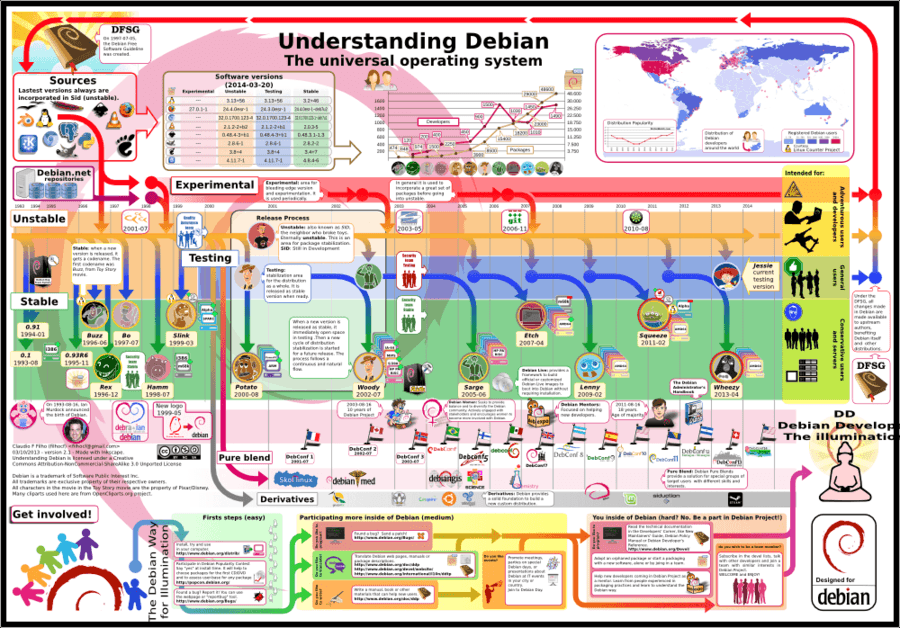
CrunchBang is dead, long live #!++
CrunchBang developer Philip Newborough recently announced the end of the project after having worked on CrunchBang for about 10 years. Obviously, not an easy decision, but one to respect. Even though CrunchBang was never a huge distro, it does have a loyal user base. So it is not too surprising, that they won't just let it go away and some of them started #!++ to continue the legacy.
😎 Fun Stuff
Terminator runs Linux 4.1.15
This image from Terminator showed up on Reddit, it shows some terminal output of a Linux system with version 4.1.15-1.1381_SKYN12nnmp. Greg Kroah-Hartman thinks this is a very good reason to have the 4.1 branch of the Linux kernel be an LTS branch.

Bash Fork Bomb T-Shirt White Print
How to create a fork bomb to crash a computer system? Use this cryptic bash command:
:(){ :|:& };:
A t-shirt with the code for a Bash fork bomb printed in a white monospace font.
Bits of Linux is a bi-weekly round-up of interesting articles, discussions, Q&A, open source software projects, new Linux devices and reviews as well as a dose of fun stuff related to Linux, that have been published or I have discovered during the past 2 weeks. To not miss posts in this series, subscribe to the Bits of Linux RSS feed.
To be informed of new posts, subscribe to the RSS feed or follow Linux Netbook on Facebook.
Affiliate Disclosure: External links on this website may contain affiliate IDs, which means that I earn a commission if visitors make a purchase via such a link. For details, see the disclosure page.
Related products

Acer Chromebook 11 CB3-111-C670 (11.6-inch HD, 2GB, 16GB)
Search Amazon